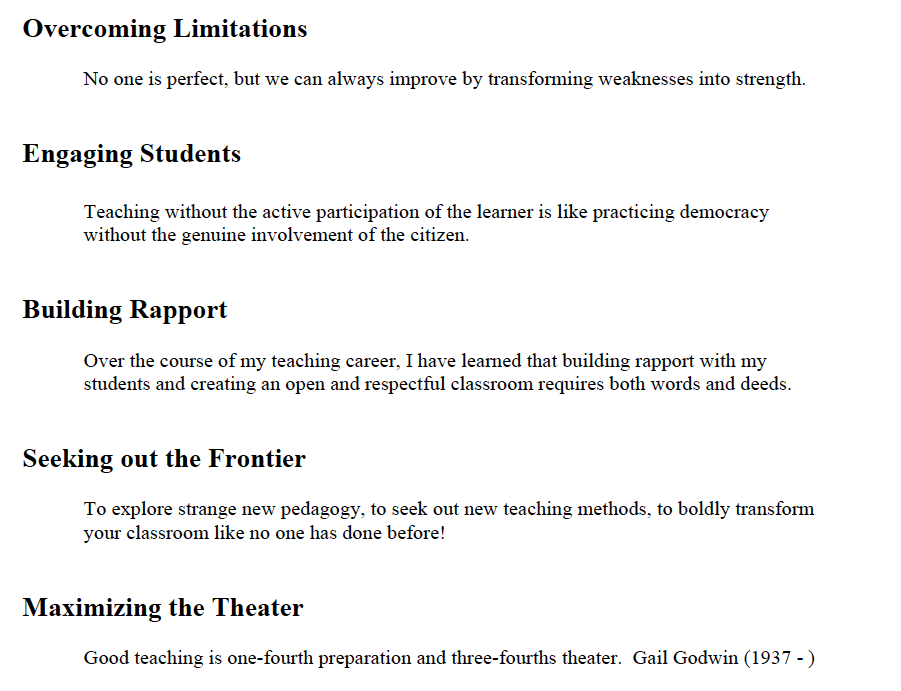Education is the process of imparting knowledge and bringing about desirable changes in the learner's behavior. Classroom instructions and activities are the gate way to the process of education. Accordingly, teachers of all subjects plan the objectives of any particular instruction, aka instructional objectives. In other words, instructional objectives refer to the goals of each instructional session. Leaning and/or teaching outcomes are usually based around instructional objectives.
The classification of Bloom's taxonomy of educational objectives includes three domains: The cognitive domain which is knowledge related, the affective domain which is feelings related, and the psycho-motor domain which is action related. All three domains are interconnected and interdependent. In other words, every educational activity is supposed to address at least one of these domains. However, for the sake of brevity, will only reflect on some of the preferred instructional activities related to the cognitive domain.
At the lowest level of the cognitive domain, we find the ability to recalling knowledge followed by understanding, applying, analyzing, evaluating, and creating is at the top level of the classification. Teachers know that they have to come up with instructional activities that address the exploration and stimulation of these domains.
One of the basic questions facing educators has always been “Where do we begin in seeking to improve human thinking?” (Houghton, 2004). Depending on the scope of the new knowledge whether it is factual, conceptual, procedural, or meta-cognitive, I try to utilize the adequate tools for formative assessment of my gr.12 students. In other words, I try to use the right prompts that correspond with both, the type of knowledge and the cognitive process dimension. For example, in order to check the student's ability to recall factual information I would use the prompt "list".However, if I wanted to test his memory of a conceptual knowledge I would use the prompt "describe". Similarly, if I wanted to test students understanding of a procedural knowledge I would use the prompt "predict", as opposed to the prompt "construct" if I wanted to test their meta-cognitive capabilities. I make point of having the activity challenge revolve around answering said prompts. In my experience, using the correct prompt is key to realizing learning and/or instructional objectives.
Refernces
1.
Forehand, M. . (2010) Emerging Perspectives on Learning, Teaching, and Technology, Global Text, Michael Orey. (Chapter 3). Retrieved from https://textbookequity.org/Textbooks/Orey_Emergin_Perspectives_Learning.pdf
